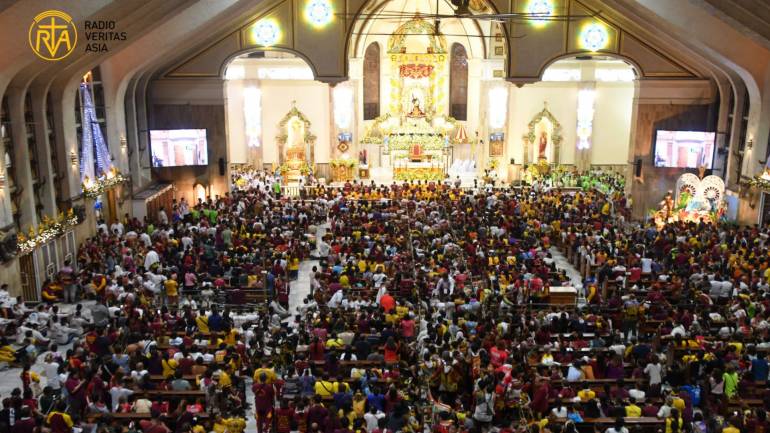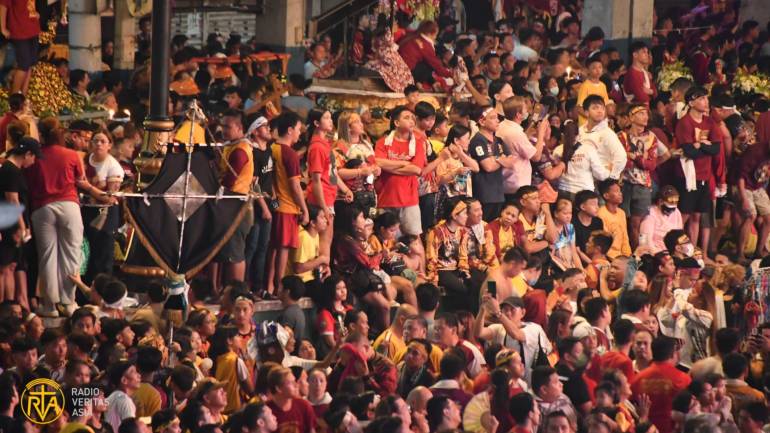Philippines’ ‘Traslacion’ returns after three years, draws more than 6 million devotees

After a three-year hiatus due to the COVID-19 pandemic, the religious procession known as ‘Traslacion’ honoring Jesus the Black Nazarene was held once again in the Philippines.
One of the biggest religious events in the country, this annual procession draws millions of devotees to pay homage to the miraculous life-size image of a dark-skinned Jesus carrying the cross.
According to the Quiapo Church Command Center, the image’s home in the capital city of Manila, this year’s Traslacion welcomed a total of 6,532,501 devotees.
During the procession, the Black Nazarene is enthroned on an ‘andas’ (carriage), with ropes attached to it to be pulled by the people.
Held every January 9, the Traslacion commemorates the solemn transfer of the centuries-old image from its original church in Intramuros, Manila, to its current home in the city’s Quiapo district.
Devotees believe that touching the ropes of the carriage or having their towels wiped on the image will bring them good fortune or heal their illnesses.
When the procession began at the Quirino Grandstand before daybreak on Tuesday, the Command Center recorded around 657,000 people immediately joining.
After gracing the streets of Manila the entire day, the revered image returned to its basilica at Quiapo at 7:45 p.m.
According to the Command Center, this was the fastest ‘Traslacion’ ever, only lasting 15 hours.
The longest Black Nazarene procession on record occurred in 2012 and lasted 22 hours.
Meanwhile, the Philippine National Police (PNP) noted that the religious event was “generally peaceful,” except for the usual reported illnesses and injuries.
Furthermore, the rector of the Quiapo Church, Father Jun Secson, said that they sent a proposal to the Vatican to declare the Feast of the Black Nazarene as a national feast in the Philippines.
Last July, the Catholic Bishops’ Conference of the Philippines (CBCP) approved this proposal during its 126th Plenary Assembly.
Radio Veritas Asia (RVA), a media platform of the Catholic Church, aims to share Christ. RVA started in 1969 as a continental Catholic radio station to serve Asian countries in their respective local language, thus earning the tag “the Voice of Asian Christianity.” Responding to the emerging context, RVA embraced media platforms to connect with the global Asian audience via its 21 language websites and various social media platforms.
















